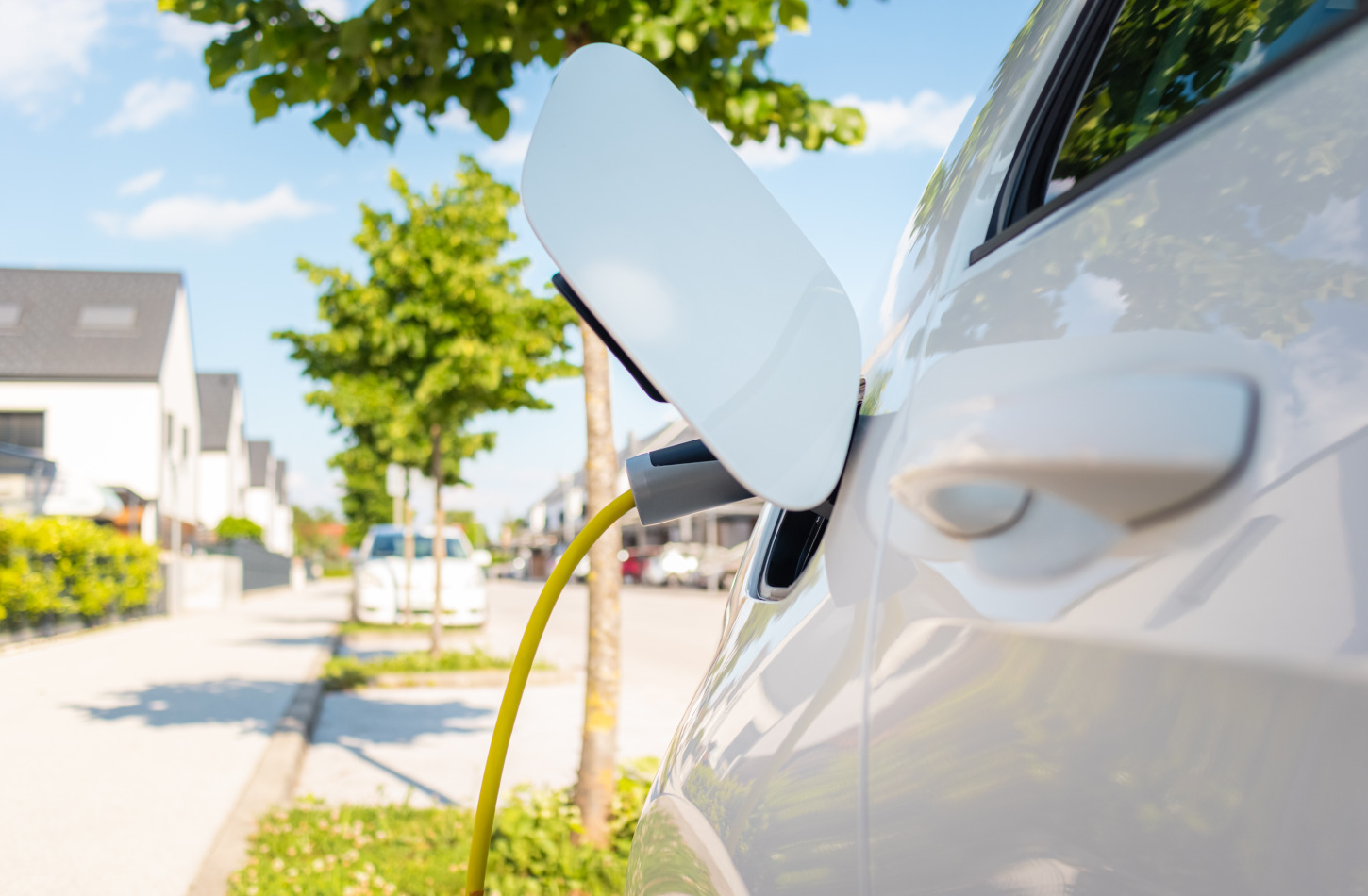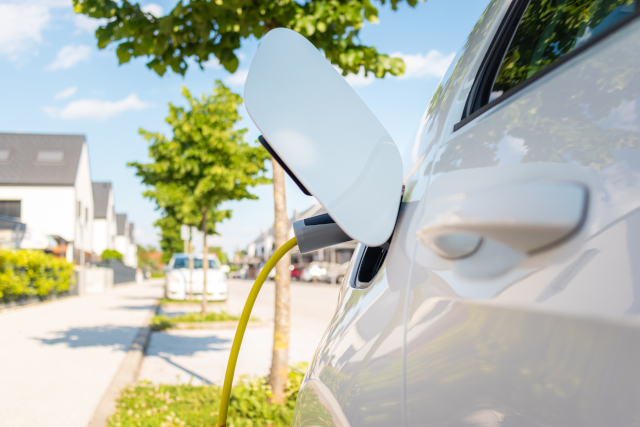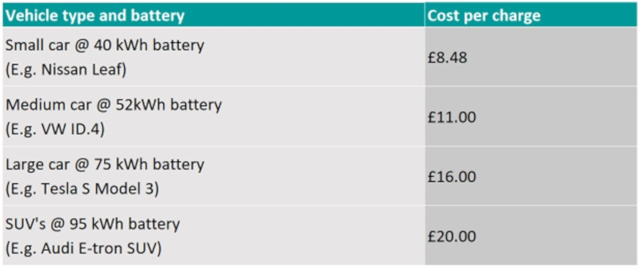Furnished Holiday Let Tax Changes: Which Tax Reliefs Still Apply?
The Furnished Holiday Let (FHL) tax relief regime was abolished in April 2025. As a result, the tax benefits...

As a holiday let owner, an electric charging point installation is well-worth considering as an investment opportunity.
You can cater to the rising demand of holidaymakers looking for a self-catering property that offers this service. This is particularly important if your property is located in a rural area where these facilities may be limited.
Providing a charging point will allow your guests to enjoy a hassle-free break. And can in turn increase positive reviews and boost your booking potential.
There’s much to be considered, so enjoy reading our helpful guide. It features our top considerations when thinking of investing in a holiday let electric charging point.

Use the quick links below for details on a particular topic. Or continue reading for our complete electric charging point installation guide for holiday let owners:
Electric vehicles, commonly known as EVs, are revolutionising the way we travel.
They are becoming an increasingly attractive option due to their lower running costs, the expanding choice of models available and the intensifying concerns about the wellbeing of the planet.
Here are a few reasons we think that having an installed at your holiday let could be a rewarding investment.
The UK’s electric car charging infrastructure is rapidly changing.
It will continue evolving in order to stay ahead of the seismic shift preceding the Government’s 2030 zero emissions pledge, which will see an end to the sale of new petrol and diesel cars.
Evidence of the changes already apparent include the following:
It is clear the next ten years will see a big increase in the number of EVs on our roads, and the people who drive them will require facilities allowing them to charge their vehicles overnight.
Catering for this ever-increasing number of electric vehicle drivers by providing a charging point will give your holiday let greater appeal.
As global awareness of the impact travel is having on the environment grows, more of us realise that travel doesn’t have to cost the earth. Transport, in particular cars, is the largest source of CO2 emissions.
Choosing to travel more sustainably by using alternative options like EVs, helps to reduce the amount of carbon emissions linked to climate change.
In fact, cars powered entirely by electric batteries don’t produce any exhaust emissions. And help towards protecting the planet.
Not only would installing an EV charging unit in your holiday let encourage greener living and do your bit to help climate change, but it would also provide an incentive for environmentally aware guests.
Providing an electric vehicle charging point at your holiday let is not only environmentally sustainable and is likely to draw discerning guest, but it unlocks the potential for a return on your investment.
As a holiday let owner, you have the option to take payment from guests for charging their vehicles whilst at your property.
This could mean that the running costs of your investment will be covered, and guest payments can contribute to the installation cost and more.

The majority of self-catering holiday cottages across the UK are found in the countryside, where there are limited numbers of public charging facilities.
In addition to which, many EVs are all full battery-powered cars and charging can take some time.
So, providing a point for recharging a car after a long journey in a private driveway, or by an off-road parking space, is always going to be the most convenient choice for guests.
The installation of an electric charging point seems the logical step forward in providing a convenient solution for guests to charge their EVs while staying at your property.
So, here are a few things to consider with the installation of car charging points at your holiday cottage
It may not be something that you think of, but you need to consider whether your property has sufficient electrical capacity to add an EV charging point.
Electric vehicle charging points draw quite a lot of power. This can create problems if you are close to the limits of what your individual system can deliver.
Always check with an electrician or certified installer to find out if your fuse board has enough capacity to support the addition of an EV charging point before ordering one for your holiday let.

As long as you have off-street parking, either in a driveway, carport or garage, you will be able to provide an EV charging point at your property.
Installation involves wall mounting the unit on an exterior wall or garage, near to where your guests park. And connecting it safely to the mains electricity supply.
Home electric charging points must be installed by a professional, certified installer to ensure that it is safe for use. Arranging is easy, and you can do it through either your energy provider or a specialist company.
Electric car charge points offer different power outputs. The higher the power output, the quicker the car charges.
These are often the cheapest to use and are best suited when guests are parked overnight at your property. Slow chargers have a maximum of around 3.7 kW available, and typically take between 6-12 hours to recharge an electric car.
A 7kW home charger will take 3-7 hours to recharge an EV depending on the battery size of the car.
A rapid charger can be rated at anything from 11kW to 22kW and can deliver 60-200 miles of range in 20-30 mins. Rapid Chargers will need 32A or 60A 3-phase power supply. In general, higher power levels will charge quicker.
From 30 June 2022, suppliers will not be allowed to sell non-smart charging points. To support a smart charging point, you will need access to the internet, either via WiFi or a 4G connection.
Installation manuals for smart chargers will advise that when choosing the location for your charging point. You need to check carefully that there is sufficient signal there.

There are several models available to buy and lots of different installers who can fit them for you. It can be confusing. But all you need to do is decide what power rating you want and choose either a tethered or socketed charge point.
A socketed charge point comes without a cable and is essentially a dedicated charging station. It is fitted with the necessary safety devices to protect your guest, their car and your property.
The benefit of a socketed charger for your holiday let is that it is compatible with all plug-in electric vehicles. Making it an ideal option when welcoming guests with different cars.
If this is the option you choose, it’s worth letting your guests know that they will need to bring their own separate charging cable when visiting.
A tethered charge point comes with a long cable attached to the unit for ease of use. It is a popular choice as guests just need arrive and plug in. They do not need to bring their own cable.
The majority of tethered cables have a Type 2 connector, as most newly manufactured electric cars have that connection.
The Government has introduced new smart charge point regulations which came into effect as of June 2022.
The Electric Vehicles Smart Charge Points Regulations 2021 is the governments way to ensure that any new EV charge points have a smart functionality so that it charges at the best time for the electricity network.
Together with added cyber securing and protection of customer data, the smart charge point regulations introduced three new requirements:
The aim of these new regulations is to ensure that new charge points make the most of ‘optimum charging’.
The peak demand, or ‘rush hour’ on the grid happens in the morning and late afternoon. This means that by default EVs will only charge overnight or during the middle of the day.
That’s good for the grid and better for the environment. Peak-time electricity generation tends to produce more CO2 as we rely more on gas fired power stations rather than renewable energy sources.
If you’re thinking about getting an electric car charger home installation for your holiday let, it doesn’t have to be complicated and it certainly doesn’t need to be expensive either.
The cost of installing a car charging point will vary from company to company, with many offering more than one price option.
The price depends on the type of charge point, the speed you are likely to opt for and whether installation is included. The most affordable options are 3.7kW chargers while 7kW chargers are more expensive.
According to EV charging point platform Zap-Map, there are around 40 manufacturers that provide electrical charging points suitable for residential use.
They also advise that typically, a 3.7kW unit will cost between £250 and £500, while a 7kW charge point will cost between £450 and £800. These guideline costs are for the unit without installation and are subject to change.
Here are a few examples of well-known brands who supply and provide installation of electric car charging points. Here you can get an idea of what options there are available as well as the installation costs.
The good news is, that once installed, you only pay for the electricity used to charge a vehicle. And most manufacturers and installers offering a product warranty.
The cost to charge an EV at your holiday let will vary dependent on the following:
With this in mind, we’ve used the Ofgem average cost of electricity, which is 17.2kWh, and the Zap-Maps home charging calculator to get a generalised estimate of what potential costs to expect to charge a selection of various sizes and types of EVs at your property.

These are just examples of what to expect in terms of what it will cost to charge an electric car. And we recommend that as an owner, you work out an approximate value of what the use of an EV charge point will add to the property’s bills.
You can decide whether your guests with EVs have the charging point as a cost inclusive, or add it is an extra for them to pay.
The electricity used to charge a guest’s electric vehicle will be included as part of your normal electricity bill. So it’s important to be on the best energy tariff for your holiday cottage.
Fortunately, several energy companies offer EV energy tariffs specifically for properties with electric charge points. These tariffs tend to rely on smart metering and are generally cheaper to use during the night when demand for energy is lower.
Having a smart meter will enable you to access the full range of tariffs on offer by various suppliers. As well as providing real time information on electricity consumption.
Another advantage is that EV energy tariffs sometimes incorporate renewable energy promises and other added benefits.
On 29 March 2022, the Government updated their Workplace Charging Scheme (WCS) policy to enable holiday and short-stay accommodation providers to apply for a grant.
The Workplace Charging Scheme (WCS) is a voucher-based scheme that provides eligible applicants with support towards the upfront costs of the purchase and EV charging point installation.
The grant covers 75% of the total cost (up to £350) of the purchase and installation of an EV charging points.
The grant is based on the applicant and site eligibility, as well as various terms and conditions. If you think your holiday let business qualifies, you can fill in the online application.
If you qualify for the grant, the EV charge point you install will need to meet minimum technical specification and be fitted by a OZEV-authorised WCS installer.

Yes – an electric car charging point at your holiday home is a good idea.
As travellers are opting for more environmentally friendly ways to holiday, there’s no better time for you to do your bit for the environment.
Creating a convenient and sustainable option for guests to charge their vehicles will help your property stand out above the competition. And leave your guests able to make the most of their day.
At Coast and Country Cottages, we understand that adapting a holiday let business to meet the requirements of evolving customer needs may seem daunting. If you are considering having an electric car charging point installed but are unsure where to start, speak to our team.
They can advise you on which solution would be best for you and your holiday let business. As well as inform you of the costs, including the weekly rental price, which unit is best and how to go about getting the right installation for your requirements.
Whether you are considering letting your holiday home or you already have a holiday letting business, the following owner guides may be useful to you:
To find out more about holiday letting with Coast & Country Cottages, call our team of holiday letting experts on 01548 802171 or complete the form below. Our team will be in touch to answer any questions, with a copy of our FREE Owner Guide.
*At the time of publishing, Coast & Country Cottages has taken all reasonable care to ensure that the information contained in this article is accurate. However, no warranty or representation is given that the information is complete or free from errors or inaccuracies and prices given in the article are subject to change.
Discover how a local brand with national reach can work for you. We're a British Travel Award winning holiday letting agency, priding ourselves on delivering consistent year-round bookings and bespoke property management options.